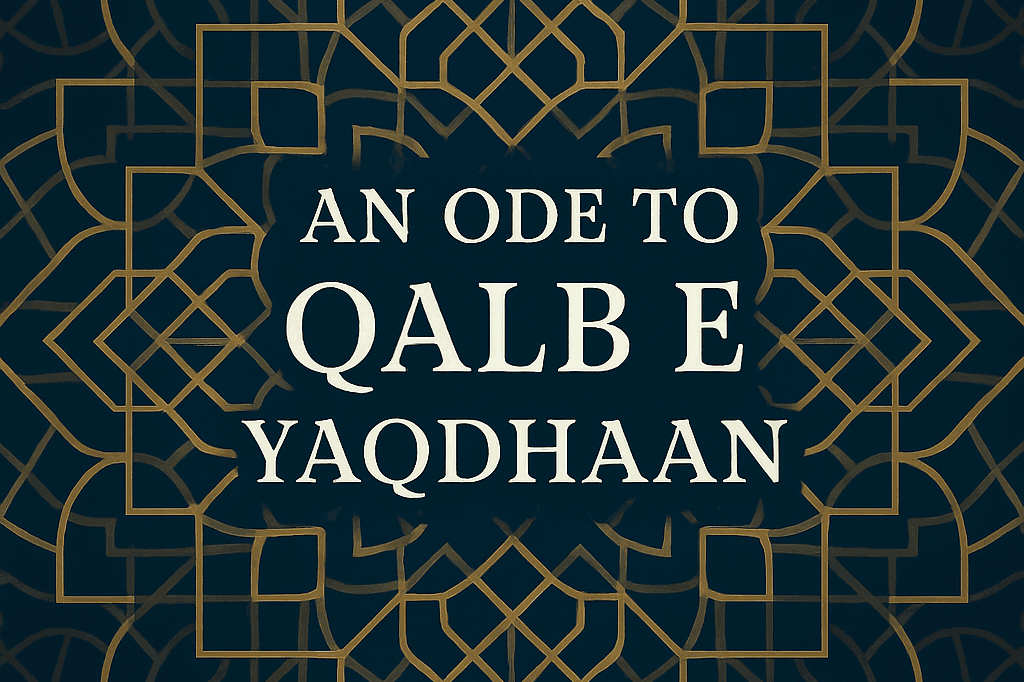بسم ﷲ الرحمٰن الرحیم
THE LAST SERMON OF PROPHET MUHAMMAD ﷺ: A TIMELESS MESSAGE FOR HUMANITY
Ammara Mohammed Khalid
eMahad Graduate
Introduction
The Last Sermon of Prophet Muhammad ﷺ, delivered during the Farewell Pilgrimage in 632 CE, holds a significant place in Islamic history and theology. Known as Khutbah al-Wida, this sermon was delivered on the 9th of Dhu al-Hijjah at Mount Arafat, marking a pivotal moment as it was the Prophet’s ﷺ final address to the Muslim community. The sermon encapsulates essential teachings of Islam and addresses fundamental issues facing the ummah (Muslim community), making it a vital reference for Muslims and a valuable message for humanity at large. As we reflect on this monumental event, it becomes crucial to explore its historical context, key themes, and the lasting impact that this sermon has on Muslims and humanity at large.
A Momentous Occasion: Historical Context
The Last Sermon was delivered during the Farewell Hajj, a momentous occasion that coincided with Hajj ul Akbar (the major pilgrimage) and Jum‘ah (Friday) prayer. The Prophet Muhammad ﷺ, aware that this would likely be his last pilgrimage, seized the opportunity to convey critical messages to over 100,000 believers gathered for the pilgrimage. The importance of this gathering lies not only in its numbers but also in the timeless messages that were shared amidst the concerns facing the burgeoning Muslim community.
Key Themes of The Last Sermon
The Last Sermon encompasses several key themes that resonate deeply within Islamic teachings:
1.Sanctity of Life
One of the most profound messages of the Last Sermon is the sanctity of human life. The Prophet ﷺemphasized the inviolability of life, urging Muslims to respect one another and refrain from causing harm. He ﷺ stated, “Your blood, your property, and your honor are sacred,” underscoring the importance of compassion and ethical conduct in interpersonal relationships. This principle serves as a foundation for justice and respect within the Muslim community.
2.Gender Rights
The sermon highlights the rights and dignity of women, assuring their treatment with respect and kindness. The Prophet’s ﷺ exhortation to “Fear Allah regarding women” underscores the importance of protecting women’s rights, a topic that resonates deeply in contemporary discussions on gender equality. The overall message affirms the importance of respecting and protecting women’s rights within the framework of Islamic teachings. This theme is particularly relevant today as discussions around gender equality continue to evolve.
3.Racism and Equality
A significant aspect of the Last Sermon is its repudiation of racism. The Prophet ﷺ declared that all humans are equal, regardless of their lineage or ethnicity, stating, “No Arab is superior to a non-Arab, and no non-Arab is superior to an Arab.” This powerful message promotes a universal understanding of equality and brotherhood among all people, challenging societal norms that perpetuate discrimination and division.
4.Debt and Promises
Emphasizing the importance of fulfilling obligations, such as repaying debts and honoring promise, the Prophet ﷺ stated, “Return the trust to whom they are due,” highlighting the ethical dimensions of financial dealings and the moral responsibility individuals have towards one another. This principle encourages integrity and accountability in all aspects of life.
5.Unity of Ummah
The Prophet ﷺ called for unity among Muslims, urging them to stand together and support one another in faith and practice. He ﷺ emphasized that the ummah should be a cohesive community, working towards common goals and upholding the values of Islam. This call for solidarity is crucial for the strength and cohesion of the Muslim community, especially in times of adversity.
Understanding The Composite Nature of The Sermon
It’s essential to recognize that the Last Sermon is a composite work, a collection of inspired statements that various narrators have recounted over time. This fragmentation encourages a deeper, nuanced understanding of each theme rather than viewing it as a single, unified address. The diversity in narrations across hadith collections sheds light on the rich tradition of interpretation in Islam.
The Enduring Importance of the Last Sermon
More than a historical document, the Last Sermon exemplifies a timeless message that continues to inform and inspire. It provides a framework for Muslims to engage with their faith and integrate its principles into contemporary discourse. There is a compelling need to promote the teachings of this sermon among both Muslims and non-Muslims, especially the younger generation, to foster a better comprehension of Islam’s core values.
Conclusion: A Call To Action
In conclusion, the Last Sermon of Prophet Muhammad ﷺ stands as a monumental testament to Islamic teachings. While often perceived as a singular sermon, it embodies a collection of profound messages that touch on sanctity of life, gender rights, equality, ethical conduct, and communal unity. These themes resonate within the Islamic tradition and offer invaluable insights for all of humanity.
This article invites a critical engagement with historical sources, emphasizing the urgency for Muslims to lead in understanding their faith. By embracing the universal messages encapsulated in the Last Sermon, we can address misconceptions, promote an accurate representation of Islamic teachings, and ultimately contribute to a more harmonious global community. The Last Sermon remains a beacon of guidance, urging us to uphold the values of justice, compassion, and unity in our lives.




SubhanAllah indeed!!
The Last Sermon of our Prophet صلى الله عليه وسلم is something every Muslim should read and understand it deeply. It alone guides us as to how important it is to fulfill the right of others.
Imagine treating every Muslim as your brother/sister and liking for them what we like ourselves, that is the true essence of Islamic brotherhood.
Perfectly summed an invaluable part of our history! May Allah swt bestow Muallimah from His infinite mercy for the work of Deen! Ameen
MashaAllah! Very beautifully written Muallimah
SubhanAllah there is really no aspect of life that Islam has left untouched. Nabi ﷺ gave us guidance regarding everything, from the macro to the micro. He ﷺ gave us guidance about what today are our biggest problems, like gender equality and racism, and also about how to behave in our day to day life, like how to eat, drink, dress.
May Allah Ta’ala grant us Tawfeeq to act upon all the teachings of Islam and Nabi ﷺ…Ameen
Ma shaa Allah beautifully explained!
SubhanAllah